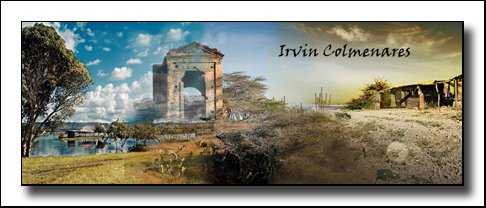
Reading was not part of my family's habits. At home there were no books of any kind, so for me the book was a bit of a foreign object.
The closest contact with reading was through the newspaper. On Fridays my father always carried an evening paper and read it on his couch until sleep overcame him.
I was in the fourth or fifth grade when I discovered in those evening papers the comic strip section. They were small vignettes of three or four frames, in black and white. Most of them just told silly jokes, but there were two where there were other stories, the one about some kind of super hero called the ghost and the Tarzan stories. Of the two the one I enjoyed the most was the one about the jungle man.
Once I was passing in front of a newsstand and I saw the comic books and they had one about Tarzan. I asked my mother if I could buy it and she said yes. I'm pretty sure that was the first book I read.

When I got to high school I was forced to read one or two costumbrista novels by authors from my country, but those readings, perhaps because they were forced, did not awaken in me greater enthusiasm nor did they generate in me any curiosity to read other things.
My interest in reading was born at the time of the University, thanks to a friend who liked books.
This friend went to the library every afternoon, which was common among us since we had a lot of research to do. I also went to the library to do my homework, but I only read about topics related to my classes.
On one occasion I noticed that he was reading other kinds of books. I approached him and asked him, and he told me that he was reading a very enlightening work. The expression made me curious because it didn't really mean anything to me. At seventeen I didn't think my understanding should be enlightened. The book my friend was reading was "The Steppenwolf" by Herman Hesse.

I wrote down the name of the book and it was not easy to find it in the bookstores near my house, most of them only sold school texts. But in the end I found the book.
I started reading it and found it difficult, it talked about things I didn't understand. If it had been at that time the experience would have been completely different because on the Internet I would have found the answers to my doubts, but in those days clarifying doubts was not easy.
But I did not give up, I managed to finish the book and I had left a lot of notes in a notebook, topics that I did not understand and some thoughts that I found interesting.
Whenever I had the opportunity I would look for my friend to talk about my notes, we would spend long hours talking about the book in the University cafeterias. It was in those conversations that I really learned to give importance to reading.
From that moment on my library was growing, I was especially interested in history, philosophy and literature. When I started working, my reading time was considerably reduced, but I always set aside at least half an hour a day.

At the beginning of the year 2000 I retired from the most time-consuming job and kept only a few hours at the university. It was then that I was able to dedicate myself fully to reading, in all these years I read up to six hours a day.
Nowadays I have slowed down a lot, sometimes I can only read for a few minutes a day, my eyesight gets very tired and I give priority to doing my writing in HIVE.
One of the things I value most about my reading experience is having been able to pass on to my children an interest in reading. They all like to read and have been able to transmit that enthusiasm to their daughters. The fact that they are all readers makes me very happy. I am one of those who think that reading makes us better people.
I am publishing this post motivated by the initiative proposed by my friend @ericvancewalton, Memoir Monday, in the forty week. For more information click on the link.
Thanks for your time.
Translated with DeepL.com (free version).





Logo creado por @themanualbot
